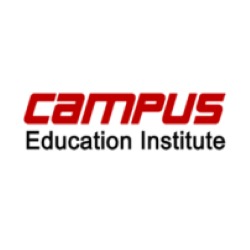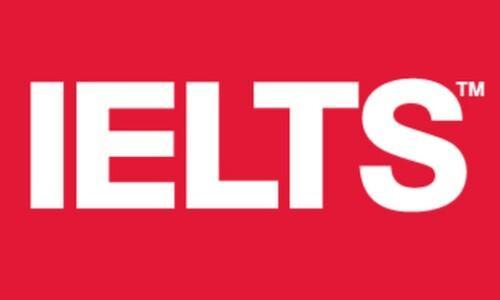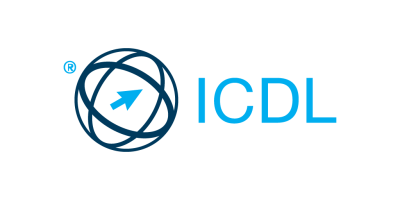CSCP (Certified Supply Chain Professional)
CSCP (Certified Supply Chain Professional) What is The Certificate Accredited Organization Certificate Advantages Program Topics Target Audience Program Objectives Why Campus Program Certification Outlines Fees/Tuition Duration/Schedule Instructors/Lecturers Exam Details What is the Certificate The APICS Certified Supply Chain Professional CSCP program is recognized worldwide …
CSCP (Certified Supply Chain Professional)

What is The Certificate
Accredited Organization
Certificate Advantages
Program Topics
Target Audience
Program Objectives
Why Campus
Program Certification
Outlines
Fees/Tuition
Duration/Schedule
Instructors/Lecturers
Exam Details
- What is the Certificate
The APICS Certified Supply Chain Professional CSCP program is recognized worldwide as the premier supply chain management educational and certification program.
– The APICS CSCP program takes a broad view of operations, extending beyond internal operations to encompass the entire supply chain—from supplier, through the company, to the end consumer. The program provides professionals with the knowledge necessary to understand and manage the integration and coordination of end-to-end supply chain activities.
– Introduced in 2006, APICS CSCP has quickly become the premier certification and training program encompassing the entire global supply chain.
– Covers a breadth of topics – globalization, logistics, supplier and customer relationship management, information technology.
– Preferred by leading companies worldwide to provide a thorough supply chain education for global operations.
– Sets the standard for supply chain education and certification more than 7,500 people in 67 countries have earned the APICS CSCP designation
Certificate Advantages
– The only certification that encompasses the end – to end global supply chain.
– Administered in 62 countries and preferred by leading companies worldwide.
– The Highest standard of certification based on a psycho metrically validated exam and body of knowledge.
– Employers and recruiters seek APICS CSCP designers.
– The APICS CSCP increases your professional value and secures your future.
– By earning the APICS CSCP designation, you will demonstrate significant commitment to your profession and your career, distinguish yourself as an industry expert and excel with your newly acquired specialized knowledge.
- Accredited Organization
APICS the association is for operations management is the global leader and premier source of the body of knowledge in operations management , serving nearly 40,000 members globally.
– The APICS Education and certification programs are recognized worldwide as the standard of professional competence in production and inventory management, operations management and supply chain management.
– The APICS Certified Supply Chain Professional (CSCP) Is a well- Known program on a global scale as the main program to teach and give a certification of the supply chain.
– Introduced in 2006, The program APICS (CSCP) to take a broad look at the processes and go beyond internal operations to include the entire supply chain- From the supplier through the company, right down to the consumer covers a wide range of topics globalization, logistics , supplier and customer relationship management and information technology.
http://www.apics.org/
- Program Topics
Module 1: Forecast and Manage Demand
Module 2: Manage the Global Supply Chain Network and Information
Module 3: Source Products and Services
Module 4: Manage Internal Operations and Inventory
Module 5: Manage Supply Chain Logistics
Module 6: Manage Customer and Supplier Relationships
Module 7: Manage Supply Chain Risk
Module 8: Evaluate and Optimize the Supply Chain
- Target Audience
– Logistics Personnel
– Materials Managements
– Purchasing Personnel
– Supply Chain Managers
- Program Objectives
Individuals will gain the knowledge and skills demanded of supply chain leaders in all sectors of the worldwide economy , including service , manufacturing and government including specialized skills the boost productivity , collaboration and innovation knowledge of how to positively affect times, inventory, productivity and bottom line profitability.
– Increased knowledge to effectively and efficiently manage supply chain activities when there are suppliers, plants, distributors and customers around the world.
– Expertise and confidence leading to job satisfaction.
- Why Campus
Following up/guiding the participant until he/she passes the CSCP exam
– 40 credit hours
– Certified and professional instructors
– Free material + questions
– Free revision for each section
– Free quiz after each section
– Re-attending the course when needed without any charge
– Catering services
– Certificate of attendance from CAMPUS
- Program Certification
A certificate issued by the Association for Operations Management (APICS).
In addition to a Certificate of attendance for the course, accredited by Campus.
- Outlines
The CSCP program is composed of 8 Modules:
Module 1: Forecast and Manage Demand
One of the first activities in supply chain management is to assemble and evaluate the various types of demand for products and services, including historical information and future predictions. This information is used to determine a forecast for future needs, and the necessary balancing of supply and demand.
A. Collect and Analyze Historical and Environmental Demand Data
B. Influence Demand Through Marketing Activities
C. Build the Forecast
D. Align Supply with Demand
Module 2: Manage the Global Supply Chain Network and Information
The design of the supply chain network involves decision-making to build a structure that will support the business strategy and allow room for growth. It is also necessary to determine and maintain the data
necessary to manage the supply chain, as well as the appropriate measuring and reporting techniques.
A. Define and Manage the Supply Chain Network
B. Manage Customer, Supplier, Product/Item, Engineering, and Logistics Master Data
C. Develop and Maintain Reports, Analytics, and Metrics
Module 3: Source Products and Services
The procurement process is critical to the management of the supply chain. This process includes
determining applicable sourcing strategies for the various types of products and services, as well as
supplier evaluation and selection and the management of purchasing contracts.
A. Align Sourcing Activities to Demand
B. Manage Categories for Sourcing of Products and Services
C. Evaluate and Select Suppliers
D. Manage Purchase Orders
Module 4: Manage Internal Operations and Inventory
In order to succeed in balancing supply and demand, operations and inventory techniques must be utilized and managed to fulfill business objectives. Performance against defined metrics must be evaluated and current methods for continuous improvement applied.
A. Plan Operations
B. Manage Inventory
C. Measure and Assess Performance
D. Analyze and Utilize Applicable Continuous Improvement Philosophies (examples include lean
principles, six sigma, total quality management (TQM), and theory of constraints (TOC))
Module 5: Manage Supply Chain Logistics
The delivery of supply to the sources of demand often includes the management of a network of
warehouses and transportation modes. This includes the various processes within distribution, the
consideration of any global requirements, and the use of technology to perform manual functions. In
addition, the use of reverse logistics provides a mechanism for the reduction of waste within the supply
chain.
A. Define and Manage Distribution Network
B. Provide Distribution Services
C. Evaluate Trade Considerations
D. Design and Manage Reverse Flow
Module 6: Manage Customer and Supplier Relationships
Managing both customer and supplier relations will enhance the performance of the entire supply chain.
This includes establishing long-term relationships, measuring performance against defined metrics, and
developing improvement strategies.
A. Manage Customer Relations
B. Manage Supplier Relations
Module 7: Manage Supply Chain Risk
Businesses today understand that risk is inherent within all supply chains. It is critical to understand the
principles of risk management and be able to model, anticipate, and prevent risk events rather than merely respond when they occur.
A. Identify Risks (examples include supply disruption, supplier compliance, financial, intellectual, and
cyber risks)
B. Assess Impact, Timing, or Probability of Risks
C. Determine Response to Mitigate Risks
D. Execute and Evaluate Risk Response
Module 8: Evaluate and Optimize the Supply Chain
Competition requires that today’s supply chains incorporate best practices, both internally and externally. This includes optimizing existing processes, as well as observing recognized initiatives such as ethical sourcing, sustainable products and processes, and corporate responsibility and social values.
A. Optimize the Supply Chain Strategy
B. Optimize the Supply Chain Network and Processes
C. Embed Sustainability into the Supply Chain
D. Consider Emerging Trends (examples include intelligent supply chain, Internet of Things (IoT), quantum computing, control towers, and blockchain)
- Fees/Tuition
For the latest offers & Savings, Please Call now
- Duration/Schedule
-40 Credit Hours:
– One Lecture per week ( 2 Months )
– Two Lectures per week ( 1 Month)
- Instructors/Lecturers
In Campus Education Institute, all our instructors are certified instructors and they are professional and experienced in delivering this program, all the instructors have Multinational experience in order to ensure delivering the real life and work experience along with the academic Knowledge.
Speaking Languages:
( English / Arabic )
- Exam Details
The test consists of 175 questions, multiple choice questions (150 operational and 25 pretest).
– The APICS CSCP score range is from 200-350. A score of 300 or higher is required to pass the exam.
Fail = 200–299
Pass = 300–350
– And do not contribute to Questions in the total score but are necessary for research purposes.
– Randomly distributed, and questions among the items and record used for statistical purposes only.
– All candidates must answer the exam questions.
– Exams length is 4 hours without break.
Course Features
- Activities Supply Chain








